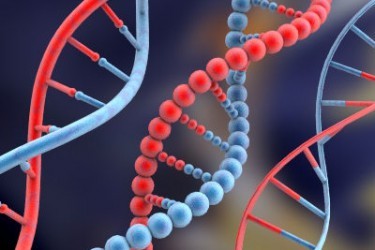A person’s happiness and satisfaction in life depends on the form of a specific gene they have, a research conducted by a behavioral economist of the London School of Economics and Political Science showed.

The research reported on by the U.K.’s Press Association found out a strong link between the “5-HTT” gene and happiness by analyzing genetic data from more than 2,500 participants. They were asked “how satisfied are you with your life as a whole?” and the answers were compared with each genetic type.
The result revealed that those who inherit two “long” variants of the 5-HTT gene tended to be happiest, with 17 percent more than average being “very satisfied” with life. For those with just one “long” 5-HTT gene, the chance of being “very satisfied” was 8.5 percent higher. People with two “short” genes tended to be least happy.
“It has long been suspected that this gene plays a role in mental health but this is the first study to show that it is instrumental in shaping our individual happiness levels,” said Dr. Jan-Emmanuel De Neve who led the research in the interview with Press Association.
By Lee Woo-young (
wylee@heraldcorp.com)
<한글 요약>
'행복 유전자'를 아시나요?
인생의 행복은 어떤 유전자를 가지고 있느냐에 달렸다는 연구결과가 나왔다.
런던 정경대학의 행동 경제학자에 의해 진행된 이 연구는 약 2천 500명의 “실험자들에게 인생을 놓고 봤을 때 당신은 얼마나 만족하고 있는가”라는 질문 답변과 각 참가자들의 유전정보를 비교 분석했다.
연구결과 각각의 부모에게 두 개의 긴 유전자를 물려받은 사람이 다른사람보다 행복할 가능성이 약 17 퍼센트 높았다. 그리고 긴 유전자 하나를 가지고 있는 사람이 매우 행복할 가능성은 8.5 퍼센트 높아졌다.
유전자가 정신건강에 있어 어떠한 역할을 한다는 것은 오랫동안 생각되어 왔으니 이번 연구는 개인의 행복 지수를 결정하는데 중요한 역할을 한다는 것을 밝히는 첫번째 연구라고 드 네브 박사는 말했다.








![[Herald Interview] How Gopizza got big in India](http://res.heraldm.com/phpwas/restmb_idxmake.php?idx=644&simg=/content/image/2024/11/20/20241120050057_0.jpg)